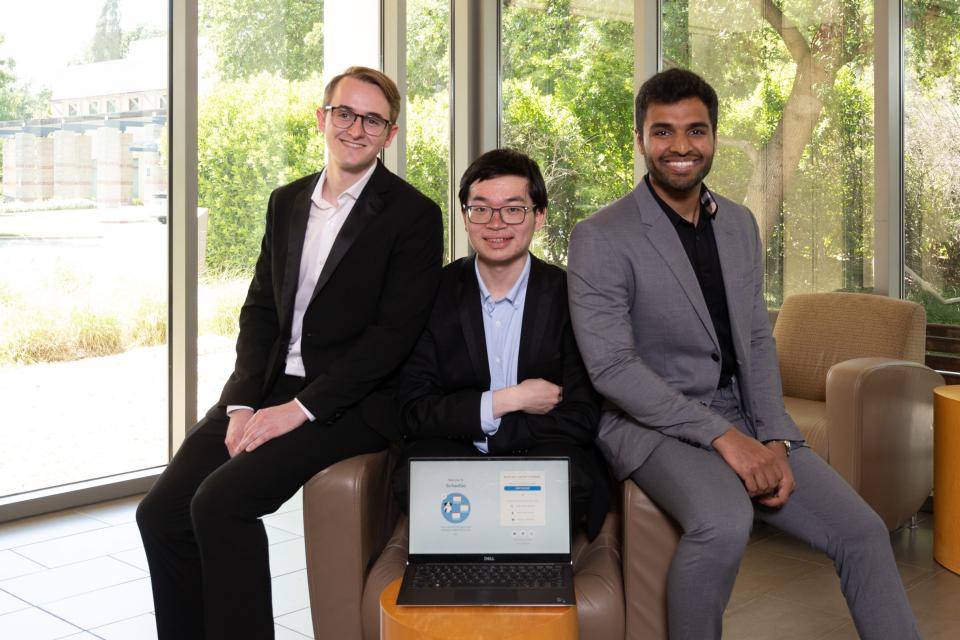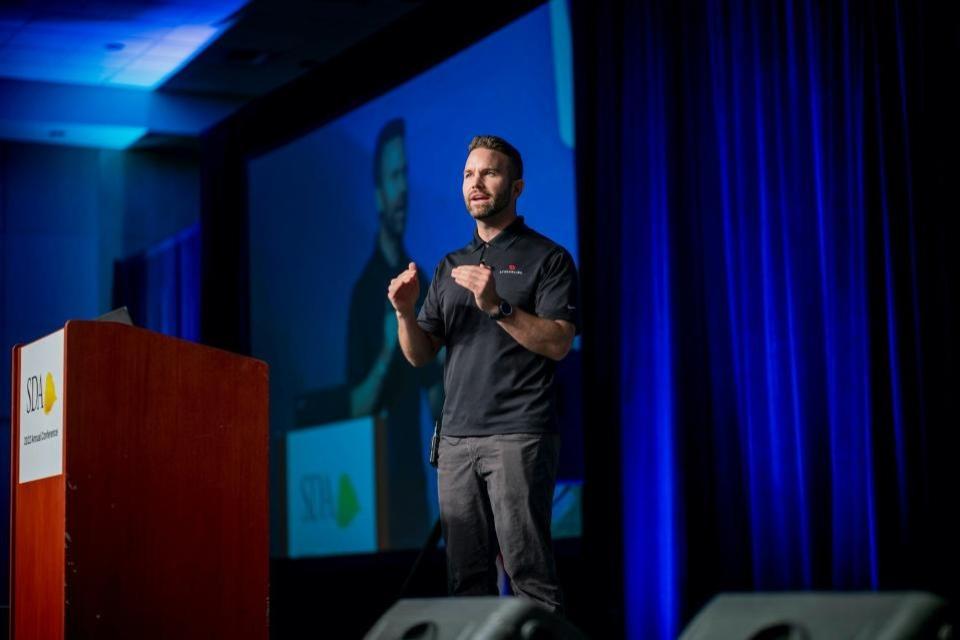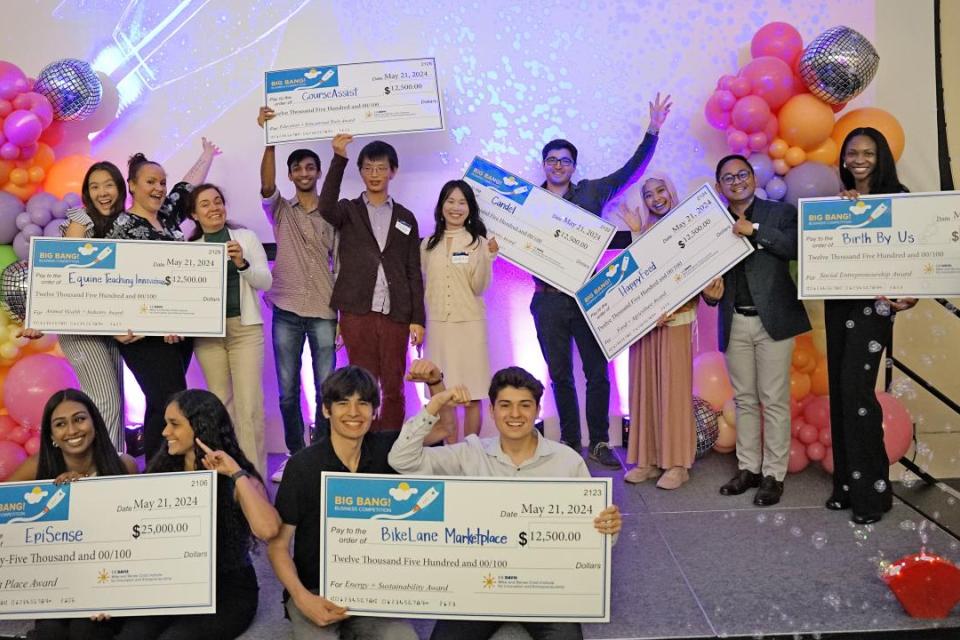Why I Returned as an Entrepreneur to Finish the Degree I Walked Away From
“I pursued an MBA to understand business—and my own blind spots.”
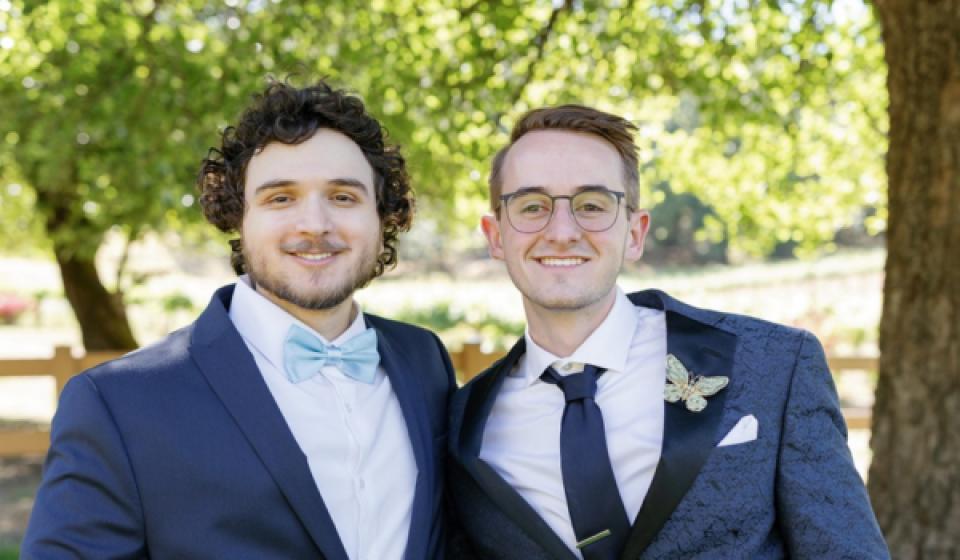
When I was a kid, my family lived in the back of a van.
We didn’t have much, but I had a front-row seat to watch my dad build a construction business from nothing. He used entrepreneurship to pull us out of poverty—and I never forgot that. From that point forward, business wasn’t just a career path. It was a tool for survival, and eventually, a tool for impact.
That’s what first sparked my entrepreneurial spirit. And I’ve never really stopped building.
A Sandbox for Impact: How Early Nonprofit Lessons Shaped My MBA Journey
My first real venture was Gamers Gift, a nonprofit I started in high school to bring virtual reality to children’s hospitals and elder care facilities. More recently, I’m working on Cosmoforge, the marketing agency I run today with fellow Full-Time UC Davis MBA graduate Yamin Elshaer.
People ask me what stuck with me most from the MBA. Leadership? Strategy? Operations?
All great—but for me, it was the relationships.
The first person I met—minute one, day one of orientation—was Yamin. Now, we’ve been building Cosmoforge together for over 18 months, and he was a groomsman at my wedding. We’ve had highs and lows, but I wouldn’t trade any of it.
That partnership traces back to lessons I learned long before business school—back in the nonprofit world, where I had something invaluable: a sandbox to learn in.
When you're helping people, the cost of failure is lower. I didn’t need to be perfect, which meant I could experiment, fall on my face and get back up with new skills. In fact, there was one point where I was banned from visiting a children’s hospital for using their logo without permission. As a result, we had to pivot the whole organization.
I taught myself design, project management, copywriting, campaign execution—all in real-world environments that cared more about impact than polish.
That freedom helped me grow fast. I’ve since had the chance to work with national and regional brands like Moneygram, Valvoline and Le Creuset, managing paid ads, rebrands and go-to-market strategies. But it was those early years in mission-driven work that built my confidence and resilience.
Dropping Out to Save a Life
Before business school, I took a leap that changed everything: I dropped out of college to launch a foundation in honor of a close friend diagnosed with terminal cancer.
What happened next was surreal. Our story went viral—over 500 million views across social media—and we broke the world record for the largest bone marrow donation drive. That event saved my friend’s life.
It was one of the most meaningful things I’ve ever done. But it also left me with a non-traditional résumé and a quiet, lingering insecurity: Do I belong in more conventional settings?
That question led me back to school. Specifically, back to UC Davis—the university I’d originally dropped out of. It felt like the right place to finish the journey I’d started.
My MBA, My Way
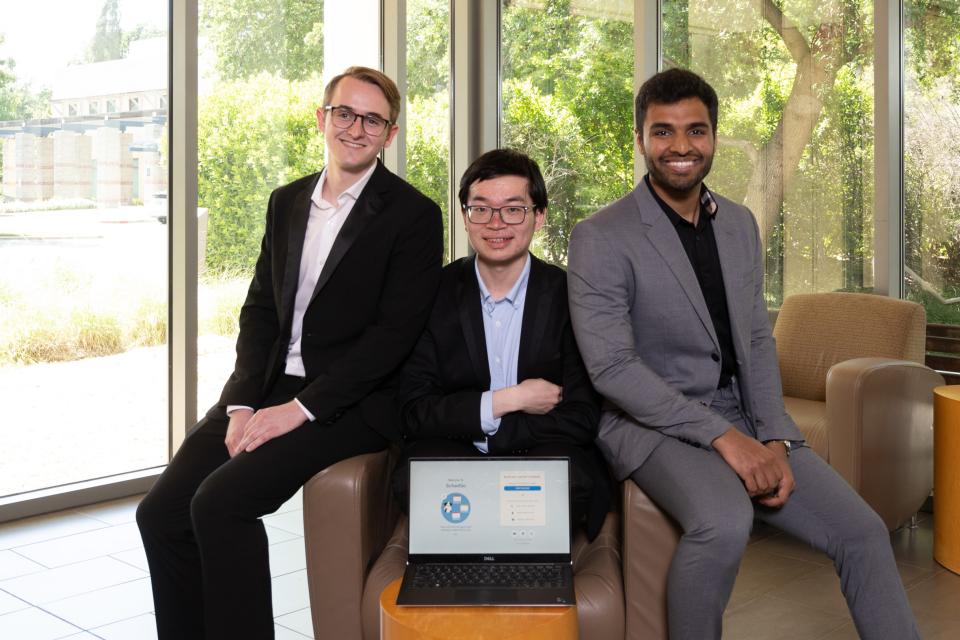
When I started the Full-Time MBA program at UC Davis Graduate School of Management, I didn’t come in with a clean background or a cookie-cutter path.
I pursued an MBA to understand how the business world worked—so I could better appreciate both my strengths and my blind spots.
And I didn’t exactly do things by the book. During my Integrated Management Project (IMP), I made a controversial call as team lead: no recurring meetings. We met once a month with our advisor, but everything else ran asynchronously through documentation and project management tools.
The faculty were skeptical. But by the end of the term, we had glowing feedback—and a recommendation for our client that we were proud of.
That lesson stuck with me. At Cosmoforge, we’ve built our operations around the same principle. We have a “No Meetings” default—both internally and with clients. It’s not always popular, but it forces purpose into every interaction. Our team is happier, our communication is cleaner and the results speak for themselves. In fact, we’ve tripled our first-year revenue goals.
For the Unconventionals
These days, I call myself a results-driven, purpose-first entrepreneur. That identity didn’t come from a single title or degree. It came from piecing together an unconventional path, and learning to trust my instincts—even when they go against the grain.
Your non-traditional path might be your biggest strength. Just take the time to understand your gaps, honor your skills and build with purpose.
To anyone thinking about an MBA or building a business, remember that you don’t need to fit in—you just need to lean into what makes you different. The rest will follow.
